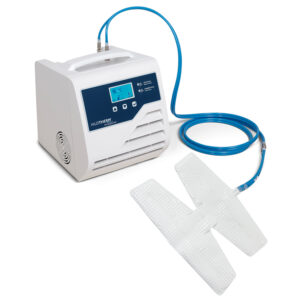Pain and discomfort are common experiences for many patients following plastic surgery, particularly during the first week of recovery. The intensity and duration of pain vary widely depending on multiple factors, including the type of procedure, individual pain tolerance, the use of local anaesthetics, and even age. Understanding how to manage post-surgical pain effectively can make a significant difference in your recovery and overall comfort.
Consult Your Doctor About Pain Management
Always discuss pain management options with your surgeon and anaesthesiologist before surgery. If you have a history of severe postoperative pain or sensitivity to certain medications, inform your medical team so they can tailor a pain management plan to suit your specific needs. Effective pain management not only promotes comfort but also helps speed up the recovery process by reducing stress on the body.
Ways to Manage Pain After Surgery
1. Take Pain Medication as Directed
Over-the-counter pain relievers like paracetamol can provide an effective baseline for pain control. Though they may not fully alleviate discomfort, they often reduce the need for stronger medications. If your pain persists or worsens, your surgeon may prescribe stronger analgesics for short-term relief. Be aware that these medications can have side effects, including drowsiness, dizziness, nausea, and constipation. It’s essential to follow dosage instructions carefully and avoid driving or operating machinery while taking these medications.
2. Prioritise Quality Sleep
Quality sleep is critical for recovery, as it allows your body to heal and naturally reduces pain levels. Creating a restful environment and sticking to a sleep schedule can help. If you’re struggling to sleep post-surgery, your doctor may suggest sleep aids temporarily. Aligning your rest with your body’s natural rhythms is beneficial for both physical recovery and mental well-being.
3. Get Up and Move
Early mobilisation, as advised by your doctor, is a key component of postoperative recovery. Gentle movement helps to control pain, prevents blood clots, and encourages circulation. Aim to sit up for meals and take short walks as soon as you’re able. For certain procedures, such as breast augmentation, specific gentle exercises (like pec major muscle stretches) may be recommended to reduce muscle pain and stiffness.
4. Manage Swelling and Bruising
Swelling and bruising are common after surgery and can contribute to discomfort. Following your doctor’s instructions on elevating your head or limbs can help alleviate swelling by promoting fluid drainage. Ice packs can also provide relief by acting as a “natural anaesthetic,” reducing blood flow to the area, and minimising swelling and bruising.
Introducing Hilotherm at Unveil Plastic Surgery
 We are pleased to offer Hilotherm as part of our postoperative care. Hilotherapy involves the controlled application of cold therapy to the surgical area, effectively reducing pain, swelling, and inflammation.
We are pleased to offer Hilotherm as part of our postoperative care. Hilotherapy involves the controlled application of cold therapy to the surgical area, effectively reducing pain, swelling, and inflammation.
Unlike traditional ice packs, Hilotherapy provides consistent and precise temperature control, enhancing patient comfort and accelerating recovery. Studies have demonstrated that Hilotherapy can significantly reduce postoperative pain and swelling, leading to improved patient outcomes.
Keep Your Pain Under Control
Pain management is essential not only for physical comfort but also for mental well-being. Taking pain medication as directed and following your doctor’s instructions can prevent pain from escalating and becoming harder to manage. As pain and swelling begin to subside, it’s natural to feel more energetic; however, resist the temptation to increase activity levels too quickly. Overdoing it can lead to a resurgence of pain and prolong recovery.
Additional Considerations for Post-Surgery Pain Management
Understand Your Body’s Healing Process
It’s helpful to know that pain following surgery will gradually decrease as the healing process continues. Most pain peaks within the first few days and begins to lessen after the first week. However, some patients may experience residual discomfort for several weeks, depending on the procedure and individual healing rates. Always consult your doctor if pain persists beyond expected recovery timelines.
Alternative Pain Relief Techniques
Non-medication-based approaches can complement traditional pain management methods. For instance, techniques like deep breathing, meditation, or guided imagery can help reduce stress and improve pain tolerance. Your doctor may also recommend physical therapy or specific exercises to address stiffness or residual discomfort.
Frequently Asked Questions
Here are answers to common questions about post-surgical pain:
- How long does pain typically last after plastic surgery?
Pain intensity usually peaks within the first few days post-surgery and gradually decreases over 1-2 weeks. Some discomfort may persist for several weeks depending on the procedure. - What is the most painful plastic surgery to recover from?
The pain level can vary based on the type of surgery, but procedures involving muscle manipulation, such as tummy tucks or breast augmentations with sub-muscular placement, are often associated with more significant discomfort. - How can I manage pain without opioids?
Over-the-counter medications, ice packs, gentle movement, and alternative techniques like meditation can provide relief without the side effects associated with stronger medications.
Patient Information
About Dr Rodrigo Teixeira
Dr Rodrigo Teixeira, MD, FRACS, is a Specialist Plastic Surgeon based in Melbourne, Australia, at Unveil Plastic Surgery in the heart of East Ivanhoe Village.
With extensive experience in aesthetic and reconstructive surgery for the face, nose, and breast, Dr Teixeira is a Fellow of the Royal Australasian College of Surgeons (RACS). He is also a respected member of the Australian Society of Plastic Surgeons (ASPS) and the Australasian Society of Aesthetic Plastic Surgeons (ASAPS). Internationally, he holds memberships in both the American and International Societies of Plastic Surgery.
Please note that any surgical or invasive procedure carries risks. To discuss your aesthetic goals or address any concerns about facial appearance or other cosmetic procedures, please consult with your general practitioner, who can provide a referral for a specialist surgeon consultation. For more information, contact us at (03) 9000 3800.